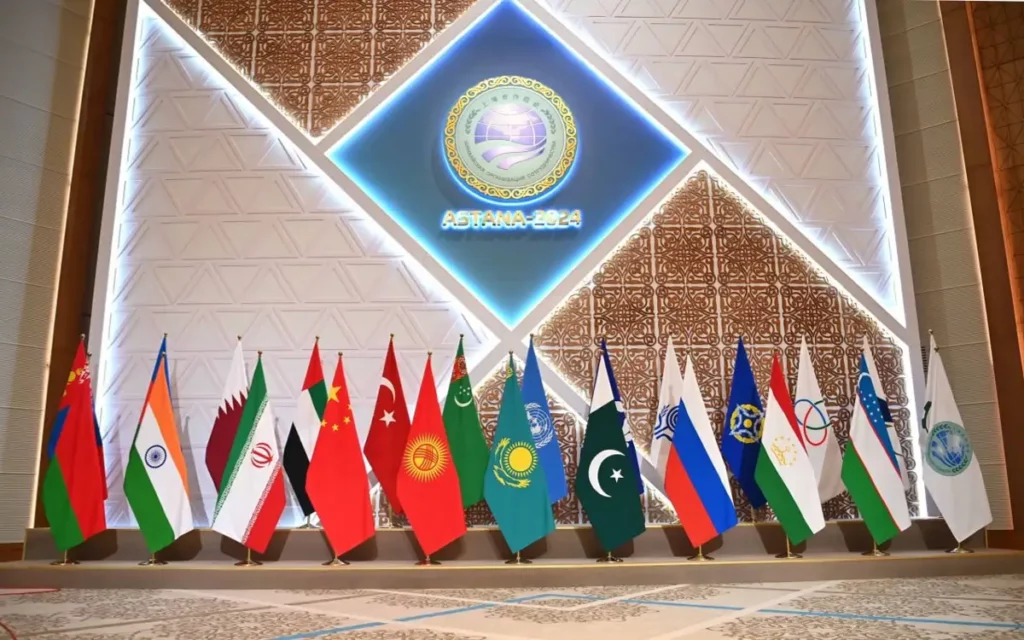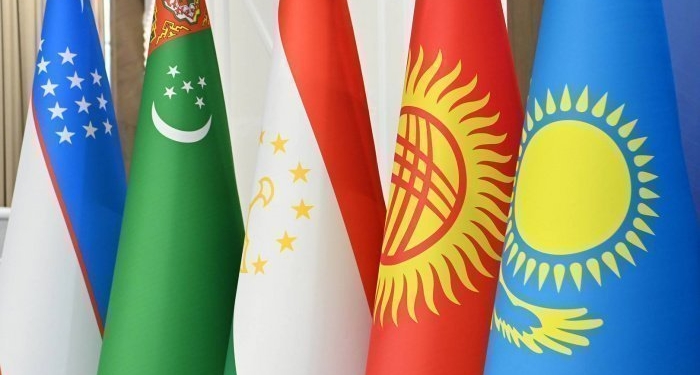
Photo: Akorda
At the summit of the Shanghai Cooperation Organization held in the capital of Kazakhstan on July 3-4, a strategy for the development of energy cooperation until 2030 was approved. The Ministry of Energy reported on the projects in which the SCO countries will cooperate, Kazinform reports.
The strategy assumes that the parties will deepen cooperation and exchange experience in implementing projects in the following key areas: oil and gas industry, electric power industry, renewable and low-carbon energy sources, peaceful use of nuclear energy, coal industry, energy conservation and energy efficiency.
The document notes that the SCO countries will rely on the possibility of meeting the domestic needs of an SCO member state for oil and gas through the priority use of oil and gas resources produced on its territory. In addition, the strategy envisages the development of transit potential, consideration of the possibility of diversifying export routes, and assistance in increasing the safety and reliability of oil and gas transportation infrastructure.
The Organization’s participants also expressed interest in creating joint projects for the production of hydrocarbon-based products, including petrochemical products.
The parties intend to study the possibilities of interconnecting the electric power infrastructure in the SCO space, as well as integrating various energy sources, and developing cooperation in the area of forming regional electricity markets for SCO member states within the framework of technological capabilities.
The strategy notes that the parties will regularly exchange knowledge in the field of electric power, jointly study issues of energy storage, as well as best practices for simplifying procedures for connecting to electrical networks.
In order to ensure uninterrupted power supply and energy security, the participants committed to consider the issue of investing in the modernization, reconstruction and repair of capacities.
The strategy also envisages cooperation in the production and export of energy equipment, and the exchange of experience in long-term plans for the development of regional electricity and heat supply systems.
According to the strategy, SCO member states will also develop cooperation in the field of renewable and low-carbon energy sources, study the possibility of increasing the production and consumption of renewable energy sources and reducing greenhouse gas emissions. It is planned to use renewable energy sources both to supply large cities with energy and to use small-scale renewable energy facilities by households, small and medium-sized businesses, including to solve the issues of power supply to settlements remote from the power grid infrastructure.
The countries also agreed to consider expanding cooperation in the new fuels sector.
In order to raise public awareness of the safety of nuclear technologies, energy agencies of the SCO countries agreed to establish an exchange of experience and best practices in conducting informational and explanatory work with the involvement of the expert and scientific community.
“The parties intend to cooperate in the field of uranium products, agreed upon by the parties, used for peaceful purposes, and also to study the possibilities of interaction between the SCO,” the strategy notes.
In addition, the possibility of creating a scientific and technical center for nuclear cooperation among SCO member states will be studied.
The authorized agencies of the SCO member states, with the assistance of the SCO Secretariat, will develop a Roadmap for its implementation.
https://www.inform.kz/ru/neftegaz-vie-i-atomnaya-energiya-v-kakih-energoproektah-budut-sotrudnichat-strani-shos-30a12e



